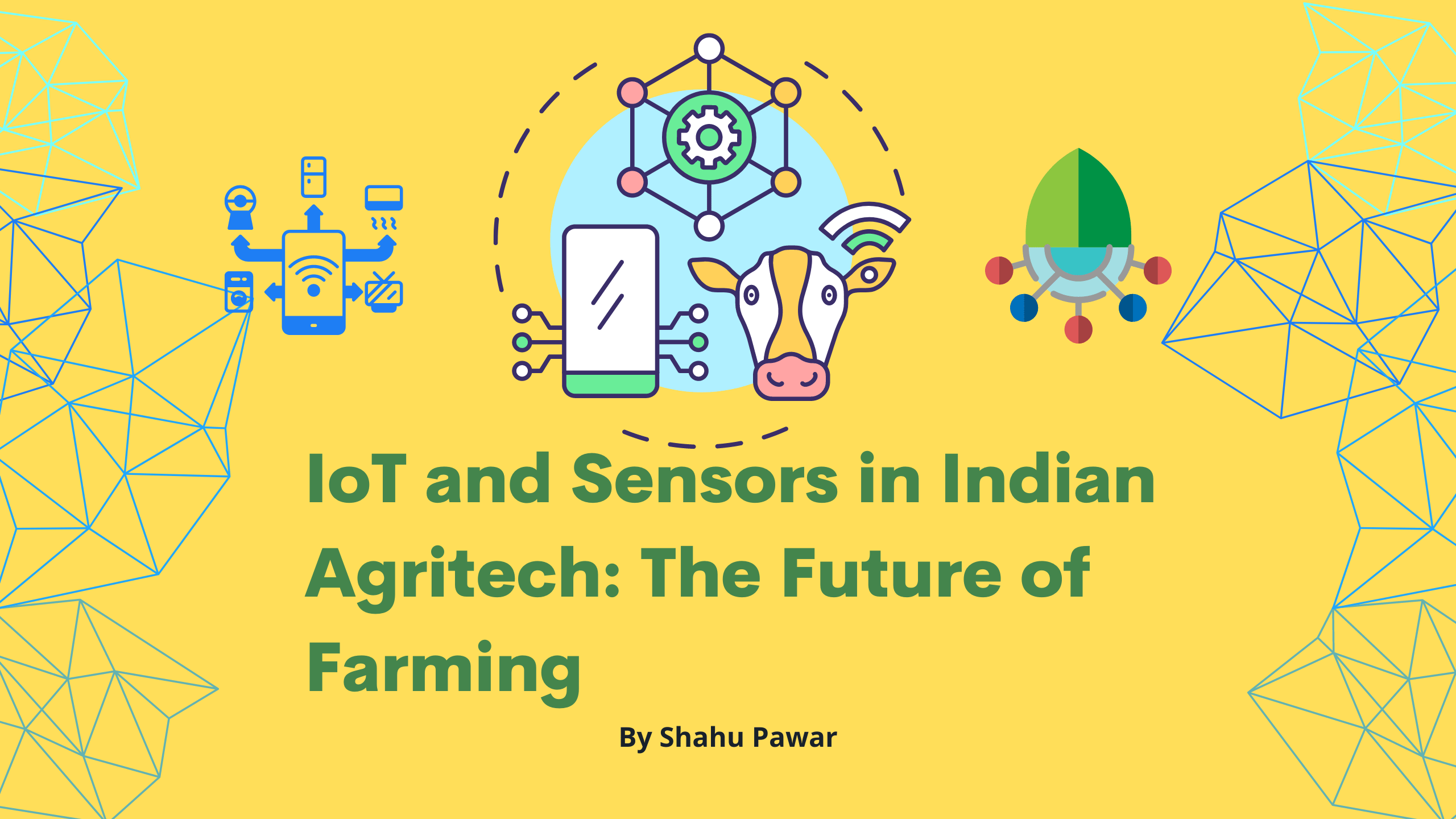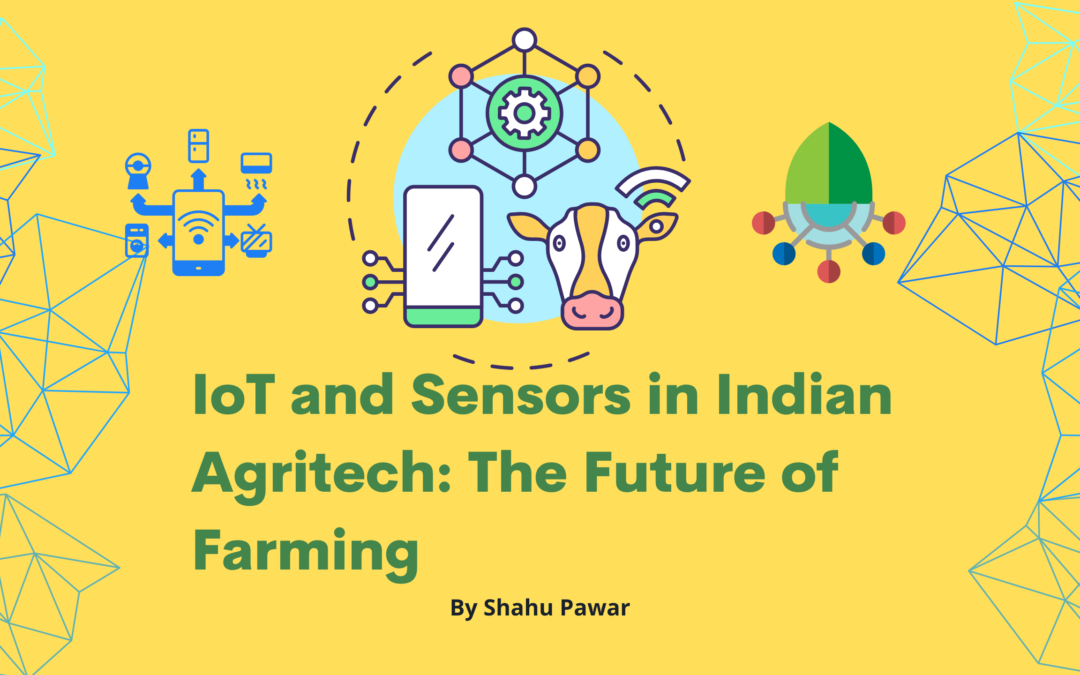Introduction:
The convergence of Internet of Things (IoT) technology and sensors has the potential to revolutionize the agricultural landscape in India. IoT-enabled devices and sensors are transforming traditional farming practices into smart and data-driven operations. This article explores how IoT and sensors are shaping the future of farming in India, empowering farmers, enhancing productivity, and promoting sustainable agriculture.

- Real-Time Monitoring and Data Collection: IoT devices and sensors allow farmers to monitor various parameters in real time. Soil moisture sensors, weather stations, and environmental sensors provide accurate data on factors like temperature, humidity, soil pH, and nutrient levels. This data is invaluable for making timely irrigation, fertilization, and pest control decisions. Real-time monitoring and data collection enable farmers to optimize resource utilization and respond promptly to changing conditions, leading to improved crop health and productivity.
- Precision Agriculture and Smart Farming: IoT and sensors facilitate precision agriculture techniques, enabling farmers to manage their farms with precision. GPS-enabled devices, drones, and sensors help in mapping fields, identifying variations in soil properties, and creating management zones. This allows farmers to apply inputs such as water, fertilizers, and pesticides at the right place and in the right amount. Precision agriculture practices reduce waste, minimize environmental impact, and maximize crop yields, contributing to sustainable farming.
- Automation and Remote Control: IoT devices and sensors enable automation and remote control of farming operations. Smart irrigation systems can be programmed to deliver water based on soil moisture levels, reducing water consumption and optimizing irrigation. Automated feeding systems can regulate the nutrition intake of livestock. Remote monitoring and control systems enable farmers to manage farm operations from anywhere, increasing operational efficiency and flexibility.
- Early Detection of Plant Diseases and Pests: IoT and sensors play a crucial role in the early detection and prevention of plant diseases and pests. Sensors can monitor plant health parameters, detect abnormalities, and provide alerts in case of disease or pest infestations. Connected devices can also collect data on insect populations, weather conditions, and historical patterns to predict and mitigate potential risks. Early detection allows farmers to take proactive measures, preventing yield losses and reducing the need for excessive pesticide use.
- Enhanced Livestock Management: IoT and sensors are transforming livestock management practices in India. Wearable sensors, RFID tags, and IoT-enabled systems help monitor animal health, behavior, and location. This data assists in identifying health issues, optimizing feeding patterns, tracking animal movements, and improving breeding practices. IoT-based livestock management systems enhance productivity, reduce losses, and contribute to the overall welfare of the animals.
- Data Analytics and Decision Support Systems: The data collected by IoT devices and sensors form the foundation for data analytics and decision support systems in agriculture. Advanced analytics tools help farmers derive insights from the vast amount of data and make informed decisions. Predictive models based on historical data, weather patterns, and crop health indicators assist in optimizing planting schedules, predicting yields, and managing risks. Data-driven decision-making leads to improved resource allocation, reduced costs, and increased profitability.
Conclusion:
IoT and sensors are poised to revolutionize Indian agriculture, paving the way for a future of smart and data-driven farming practices. Real-time monitoring, precision agriculture, automation, and data analytics empower farmers to make informed decisions, optimize resource utilization, and enhance productivity. By leveraging IoT and sensors, Indian farmers can embrace sustainable and efficient farming methods, ensuring food security, environmental stewardship, and economic prosperity. Continued investment in technology, infrastructure, and farmer education is crucial to unlock the full potential of IoT and sensors in the agritech sector in India.

